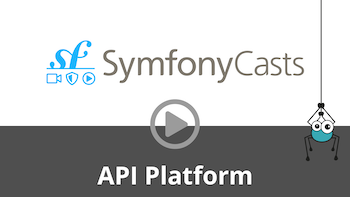The API Platform AdminTable of Contents
Table of Contents
API Platform Admin is a tool to automatically create a beautiful (Material Design) and fully-featured administration interface
for any API implementing specification formats supported by @api-platform/api-doc-parser.
In particular, that includes:
- APIs using the Hydra Core Vocabulary
- APIs exposing an OpenAPI documentation
Of course, API Platform Admin is the perfect companion of APIs created using the API Platform framework. But it also supports APIs written with any other programming language or framework as long as they expose a standard Hydra or OpenAPI documentation.
# Based On React Admin
API Platform Admin is a Single Page Application (SPA), based on React Admin, a powerful frontend framework for building B2B applications on top of REST/GraphQL APIs, written in TypeScript and React.
Thanks to its built-in guessers, API Platform Admin parses the API documentation then uses React Admin to expose a nice, responsive management interface (Create-Retrieve-Update-Delete, i.e. CRUD) for all documented resource types.
Afterwards, you can customize everything by using the numerous components provided by React Admin and MUI, or even writing your own React components.

Watch the React Admin screencast
# Features
Simply by reading your API documentation, API Platform Admin provides the following features:
- Generate ’list’, ‘create’, ‘show’, and ’edit’ views for all resources
- Automatically detect the type for inputs and fields
- Client-side validation on required inputs
- Pagination
- Filtering and ordering
- Easily view and edit related records
- Display the related resource’s name instead of its IRI (using the Schema.org vocabulary)
- Nicely displays server-side errors (e.g. advanced validation)
- Real-time updates with Mercure
By leveraging React Admin components, you can further customize the generated interface and get access to many more features:
- Powerful Datagrid components
- Search and filtering
- Advanced form validation
- Undoable mutations
- Authentication
- Access Control
- Internationalization
- And many more
# Next Step
Get your Admin up and running by following the Getting Started guide.
You can also help us improve the documentation of this page.
